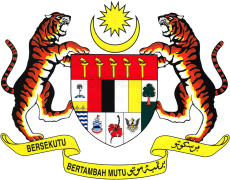Developing Eight (D-8) Preferential Tariff Agreement (PTA)
Background
-
The Group of Developing Eight (D-8) comprises eight Islamic countries, namely, Bangladesh, Indonesia, Iran, Malaysia, Egypt, Nigeria, Pakistan and Turkey.
-
The D-8 Preferential Tariff Agreement (PTA) is designed to gradually reduce tariffs and other barriers to trade on specific goods in order to promote intra-trade among D-8 members.
-
All eight (8) member countries signed the D-8 PTA at the Fifth D8 Summit on 13 May 2006 in Bali, Indonesia .
-
Malaysia ratified the D-8 PTA on 20 July 2006.
Objective
-
To strengthen trade relations among members through:
-
Reduction of tariffs and elimination of non-tariff barriers and para-tariffs;
-
Promotion and expansion of trade, contributing towards the harmonious development of economic relations among Members;
-
Creation of enabling conditions for fair competition among Members;
-
Facilitation of mutual trade and contribution towards expansion of world trade;
-
Creation of a more predictable and secure environment for sustainable growth of trade among Members; and
-
Facilitation of the diversification of commercial exchanges among Members.
-
Scope
The D-8 PTA shall apply to trade in goods, contained in the national tariff schedules of concessions and originating in the territories of the Members.
Modalities
-
Upon entry into force of the D-8 PTA, Members shall:
-
not increase applied tariff rates on imports of the products covered under D-8 PTA without approval of Supervisory Committee;
-
notify one another their respective applied tariff rates; and
-
reduce applied tariff rates of goods specified in their national schedules, according to the modalities.
-
-
D-8 PTA covers 8 per cent of all goods with tariff rates above 10 per cent. Tariff reduction for these goods are as follows:
-
above 25 per cent to be reduced to 25 per cent;
-
between 15-25 per cent to be reduced to 15 per cent; and
-
between 10-15 per cent to be reduced to 10 per cent.
-
-
Tariff reduction will be implemented in:
-
8 annual installments for the LDCs; and
-
4 annual installments for other Members.
-
-
The D-8 PTA provides for:
-
longer transition period of 3 years for LDCs to eliminate their para-tariffs and non-tariff barriers;
-
safeguard measures such as anti-dumping, subsidies, countervailing measures; and
-
a set of rules of origin used to grant concessions which is still under discussion.
-
Members shall review tariffs three years after entry into force of the D8 PTA with the objective of expanding product coverage, deepening concessions and shortening time frame.
-
The D8 PTA will be :
-
implemented once it is signed and ratified by at least four Members; and
-
operational once the D-8 PTA Rules of Origin (RoO) is concluded.
-
Status
- The negotiations on draft text of D8 PTA RoO provided by Pakistan commenced on 18-19 December 2006 at the 7 th D8 High Level Trade Officials in Islamabad, Pakistan. To date, two meetings have been held, the last meeting on 3-4 May 2007 in Islamabad, Pakistan.
- The third meeting (9 th High Level Trade Officials Meeting) to finalise the D8 PTA RoO is scheduled on 27 – 29 March 2008 in Islamabad, Pakistan.
Benefits
The implementation of D-8 PTA would enable Malaysian exporters to enjoy preferential tariff treatment for selected products in the market of the participating members and enable exporters to gain competitive advantage over similar products originating from non-participating countries.
Last Updated 2024-11-05 13:25:09 by Fauziah Osman
 |
| 











